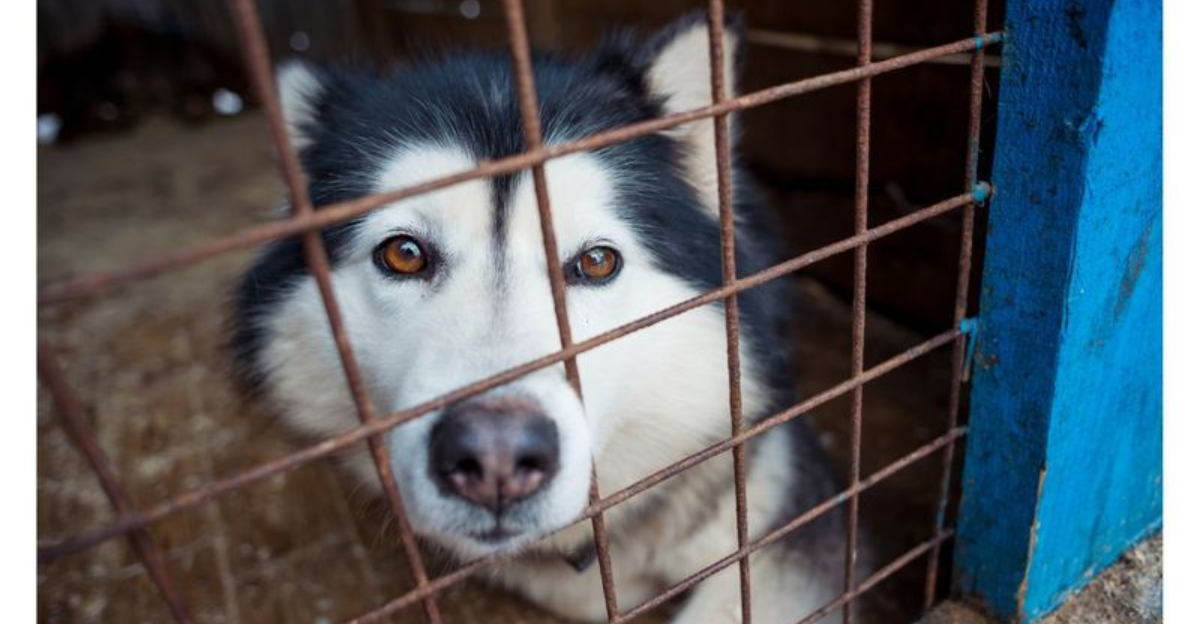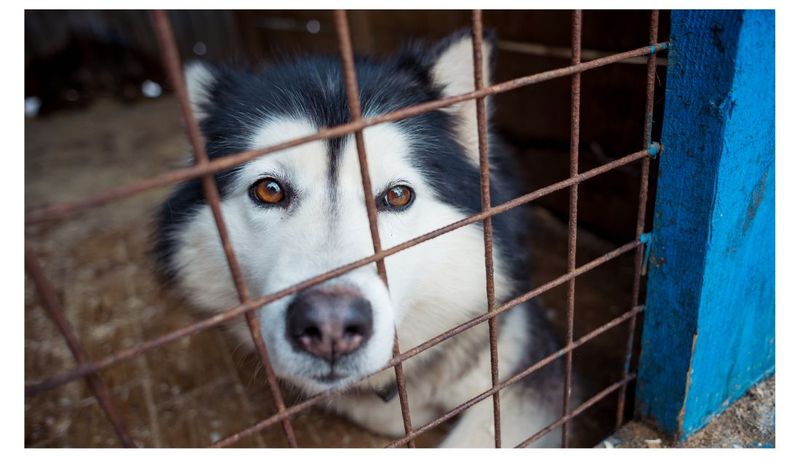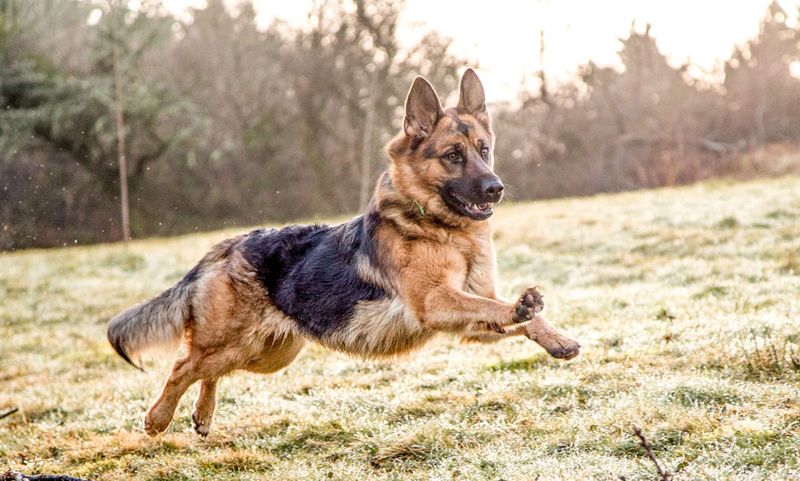10 Dog Breeds That End Up In Shelters The Most (And 5 That Rarely Stay Long)

Ever wondered which dogs are most likely to end up in shelters, and which ones get adopted quickly? Some breeds struggle to find forever homes due to size, energy levels, or common misconceptions.
Others barely have time to settle into shelter life before someone scoops them up. Understanding these patterns can help potential dog owners make informed decisions and maybe even save a life.
1. Pit Bull Terriers: Misunderstood And Overlooked

Pit Bulls face the toughest battle in shelters, often waiting months for adoption. Breed-specific legislation and media portrayal have unfairly labeled them as dangerous, despite their naturally friendly disposition.
Many landlords ban these dogs, forcing owners to surrender them when moving. Their muscular appearance intimidates potential adopters, though most Pit Bulls are actually affectionate family companions who excel with proper training.
2. Chihuahuas: Small Dogs With Big Shelter Numbers

Tiny but mighty, Chihuahuas flood shelters in surprising numbers. The “purse dog” trend popularized by celebrities left many unprepared for their strong-willed personalities and lengthy lifespans of 15-20 years.
Their tendency to bond closely with one person while remaining suspicious of strangers makes rehoming challenging. Chihuahuas often develop behavioral issues when not properly socialized, leading frustrated owners to surrender them when the novelty wears off.
3. Labrador Retrievers: America’s Favorite Has A Shelter Problem

Surprisingly, Labs frequently land in shelters despite their popularity. Their boundless energy and size catch many families off-guard, especially when the cute puppy grows into a 70-pound powerhouse needing hours of daily exercise.
Young Labs who don’t receive proper training can become destructive out of boredom. Their friendly nature makes them wonderful companions, but their high activity requirements lead many unprepared owners to surrender them when they can’t meet these needs.
4. American Staffordshire Terriers: Victims Of Stereotyping

Like their Pit Bull cousins, Staffies face harsh discrimination despite their loyal and loving nature. Insurance companies often refuse coverage for homes with these dogs, forcing heartbreaking surrenders when families can’t find pet-friendly housing.
Their strong physique requires consistent training, which many first-time owners underestimate. Staffies typically languish in shelters far longer than other breeds, waiting for someone to look beyond unfair stereotypes to see their true gentle and playful personalities.
5. Boxers: High Energy Leads To High Surrender Rates

Boxers enter shelters when their exuberant personalities overwhelm unprepared owners. These perpetual puppies maintain their playful energy well into adulthood, requiring substantial exercise and mental stimulation to prevent destructive behaviors.
Health concerns also contribute to their surrender rates, as Boxers can face expensive medical issues including heart problems and cancer. Their clownish antics and loving nature make them wonderful companions for active families, but their vigor often proves too much for sedentary households.
6. Siberian Huskies: Beautiful But Demanding

Huskies often find themselves in shelters after owners discover their stunning looks come with challenging behaviors. Their escape-artist tendencies, independent nature, and vocal howling surprise many unprepared families.
These working dogs need tremendous physical activity and mental challenges. Without proper outlets, they become destructive and unhappy.
Game of Thrones fans who adopted Huskies resembling direwolves have surrendered many when they couldn’t handle their high-maintenance needs and twice-yearly massive shedding.
7. German Shepherds: Intelligence Requires Commitment

German Shepherds land in shelters when owners underestimate their needs for structure and purpose. These brilliant dogs become bored and anxious without proper mental stimulation, developing behaviors like excessive barking or chewing.
Their protective instincts require careful socialization to prevent fearfulness or aggression toward strangers. Many families surrender them during adolescence when their size and intelligence become challenging.
Their loyalty makes shelter life particularly difficult as they struggle to understand why their family disappeared.
8. Jack Russell Terriers: Too Much Energy For Many Homes

Jack Russells bounce into shelters when their boundless energy exhausts their owners. These compact dynamos were bred for hunting, requiring significant exercise and mental challenges to prevent destructive behaviors.
Their tenacity and intelligence make them challenging for first-time dog owners who expected a calm lapdog.
Without proper outlets, Jack Russells become masters of mischief, digging, barking, and chewing their way through homes. Their long lifespan of 13-16 years means a substantial commitment many aren’t prepared for.
9. Dachshunds: Back Problems Lead To Surrenders

Dachshunds often arrive at shelters when owners can’t afford their medical care. Their unique long bodies predispose them to intervertebral disc disease, which can require expensive surgery and lengthy rehabilitation.
Their stubborn personalities and challenging housetraining tendencies frustrate unprepared owners. While charming and loyal, Dachshunds can develop separation anxiety and excessive barking habits. Many enter shelters as seniors when families can no longer manage their health needs or behavior quirks.
10. Shih Tzus: High Maintenance Leads To Abandonment

Shih Tzus find themselves in shelters when owners tire of their extensive grooming requirements. Their beautiful coats demand daily brushing and regular professional grooming to prevent painful matting and skin infections.
Health issues like eye problems and respiratory difficulties can lead to expensive vet bills. Their sweet personalities make them wonderful companions, but many families surrender them when they realize the time and financial commitment involved. Senior Shih Tzus particularly struggle to find new homes after surrender.
11. Golden Retrievers: Quick To Find New Homes

Golden Retrievers rarely linger in shelters thanks to their stellar reputation as family dogs. Their friendly, patient temperament and adaptability make them highly sought after by adopters of all types.
Dedicated Golden Retriever rescue groups quickly pull these dogs from shelters, often placing them in foster homes until permanent adoption.
Their intelligence makes them easy to train, while their gentle nature works well in homes with children or other pets. Most Goldens find new families within days of becoming available.
12. Yorkies: Tiny Dogs With Huge Adoption Appeal

Yorkshire Terriers zoom out of shelters thanks to their portable size and charming personalities. Their small stature makes them ideal for apartment living, appealing to adopters with space limitations.
Yorkie-specific rescue organizations maintain waiting lists of potential adopters eager to welcome these dogs.
Their minimal shedding appeals to allergy-sensitive families seeking furry companions. Though they can be stubborn, their affectionate nature and long lifespan make them desirable companions who rarely wait long for forever homes.
13. French Bulldogs: Trendy Pups Snapped Up Fast

French Bulldogs barely have time to settle into shelter life before adoption. Their compact size, minimal exercise needs, and distinctive bat ears make them irresistible to urban dwellers and apartment residents.
Their popularity as social media stars has created high demand, with potential adopters often competing for available Frenchies. Despite their health challenges, including breathing difficulties and allergies, these affectionate companions rarely spend more than a few days in shelters before finding new homes.
14. Pomeranians: Fluffy Favorites Find Homes Fast

Pomeranians captivate potential adopters with their fox-like faces and vibrant personalities. Their small size and moderate exercise requirements make them suitable for various living situations, from apartments to family homes.
Their gorgeous fluffy coats and alert expressions draw attention immediately on shelter websites and social media. Despite their sometimes stubborn nature and tendency to bark, Poms typically find new families quickly. Their popularity means most spend minimal time waiting for adoption.
15. Maltese: White Fluff Balls Rarely Wait Long

Maltese dogs transition rapidly from shelter to home thanks to their appealing combination of beauty and personality. Their silky white coats and button eyes make them instantly recognizable and highly sought after.
Their gentle temperament suits families of all types, while their small size works for various living situations. Though they require regular grooming, their minimal shedding appeals to cleanliness-conscious adopters.
Maltese-specific rescue groups often have waiting lists of approved homes ready to welcome these charming companions.






